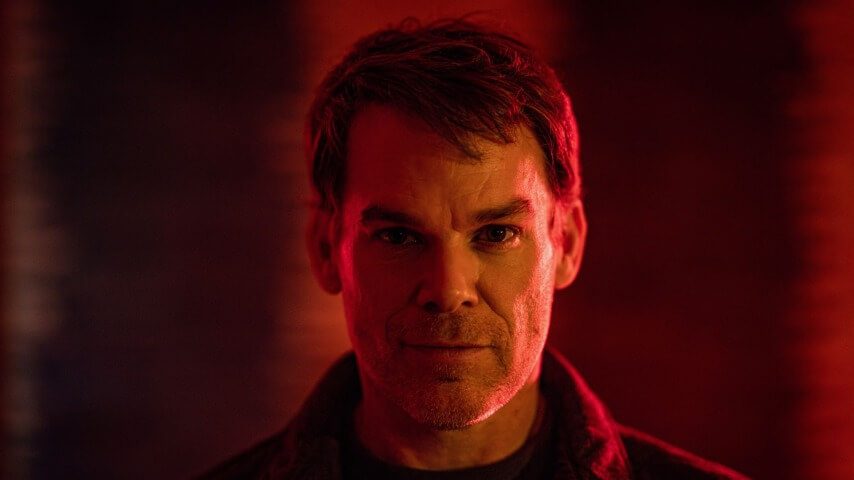Dexter: Resurrection embraces pulpy potential for killer summer escapism
Showtime's latest Dexter sequel series feels like the original when it was at its best.
Photo: Zach Dilgard/Paramount+ with SHOWTIME
When Dexter limped to a truly disappointing conclusion in 2013 that saw prolific serial killer Dexter Morgan (Michael C. Hall) driving into a hurricane to fake his own death, fans shook their heads in disappointment. Almost instantly landing on any respectable list of the worst series finales of all time, most people presumed that was the end for the hit Showtime series based on the books by Jeff Lindsay. Of course, you can’t keep a good mass murderer down in the age of nostalgic reboots, and Dexter returned in the 2021 miniseries Dexter: New Blood, followed by a prequel series last year in Dexter: Original Sin, and now what could be accurately called the true return of the show with Dexter: Resurrection. Far more than the inconsistent pair of chapters that preceded it, Resurrection feels like the ninth season of Dexter, an outing that embraces a viciously dark sense of humor to craft consistently entertaining escapism. As was often the case with later Dexter seasons, a murderer’s row of guest stars helps.
First, a brief reminder of the now-convoluted timeline. A decade after that horrible finale, Dexter was living in the upstate New York town of Iron Lake on New Blood, keeping his “Dark Passenger” at bay while trying to forge a normal domestic existence with the local Sheriff. When his son Harrison (Jack Alcott) showed up with a few questions and a murderous passenger of his own, dominoes began to fall that ended with Dexter Jr. shooting dear old dad in the snow. While it was mostly a prequel, Original Sin revealed that poor Harrison didn’t finish the job as Dexter was still humming, saved by how the icy conditions slowed his bleeding.
Resurrection picks up shortly after the end of New Blood as Dexter clings to life in a series of dream sequences that instantly make it clear that this iteration of Dexter is going to be a little kooky. Paramount+ has asked that critics keep the specifics unspoiled, but some very familiar faces from the entire run of Dexter appear in visions to Dexter, basically bringing him back to life, and setting the stage for a season that’s filled with callbacks to the original, including several characters that fans presumed they’d never see again. While most are still under wraps, it’s already been revealed that David Zayas is returning to this universe as Angel Batista, who tracks Dexter to Iron Lake after getting a tip from the Police Chief and connecting the dots to La Guerta’s conviction that Dexter was the Bay Harbor Butcher so many years ago. Before Angel can get a grip on Dexter, Morgan flees to New York, chasing Harrison to the city that never sleeps. A cop on his trail and James Remar returning as Harry to be Dex’s moral conscience? This is the Dexter we remember.
Of course, Harrison hasn’t exactly been living a normal life in New York City. Working at a boutique hotel, Harrison finds himself presented with an opportunity to satisfy his own Dark Passenger with a “moral murder” in the premiere, something that not only gets Angel’s attention hours away but sets two NYC detectives, Claudette Wallace (Kadia Saraf) and Melvin Oliva (Dominic Fumusa) on his trail. Even the manner in which Harrison disposes of his victim causes concern for Daddy Dexter, revealing that maybe he’s not as free of his father’s demons as he hopes.
 Keep scrolling for more great stories.
Keep scrolling for more great stories.
